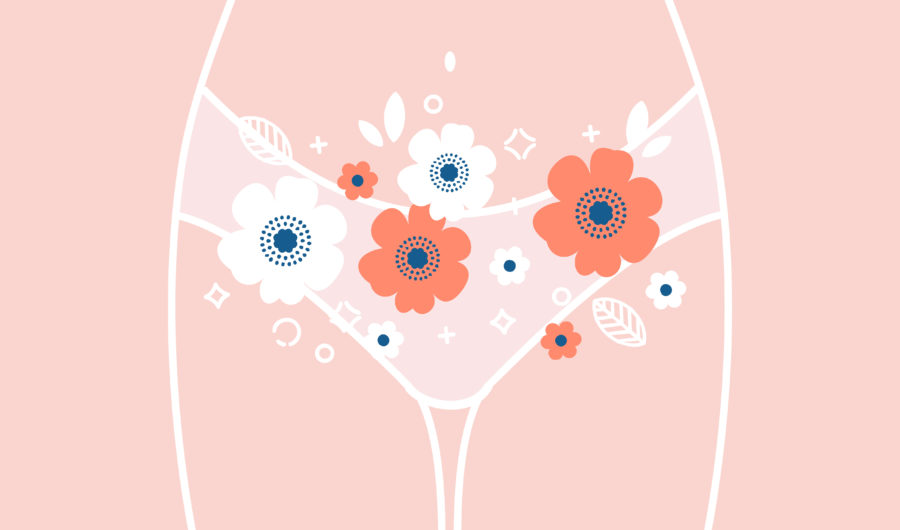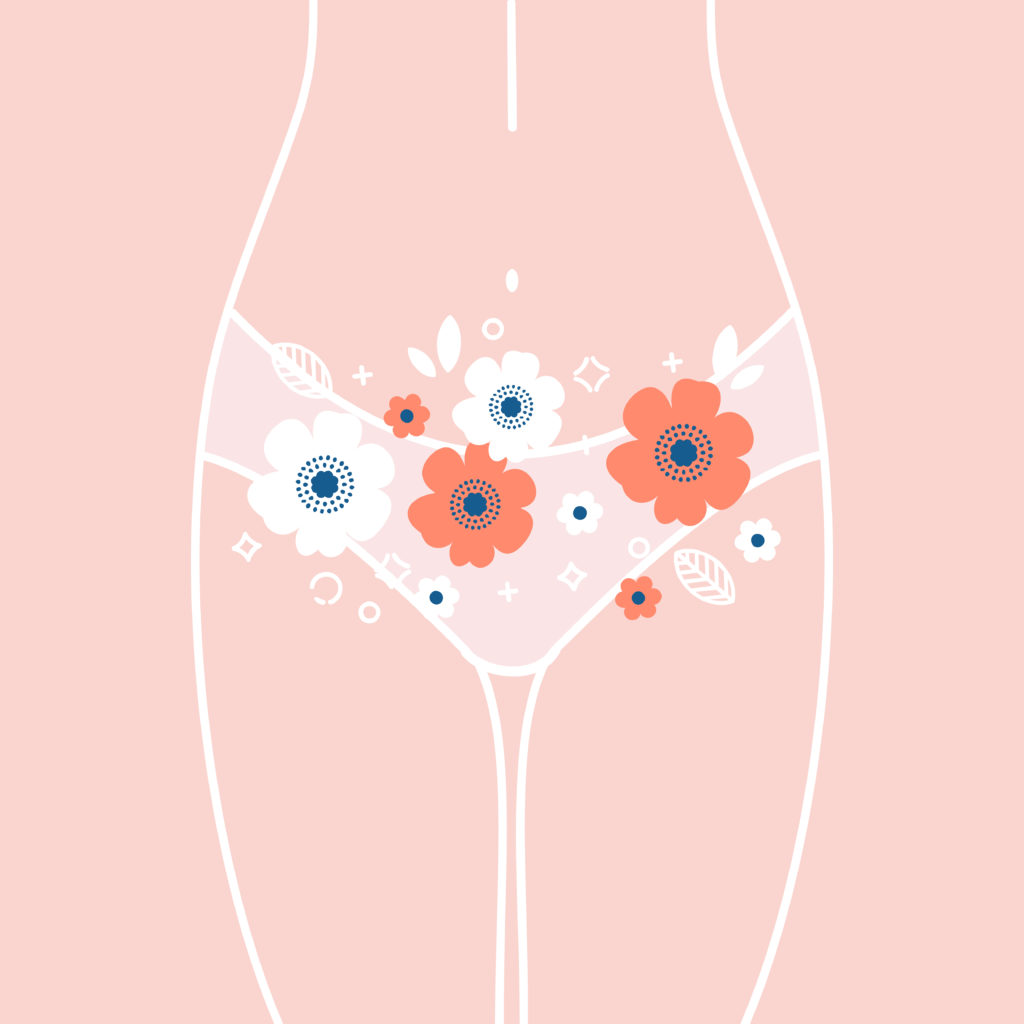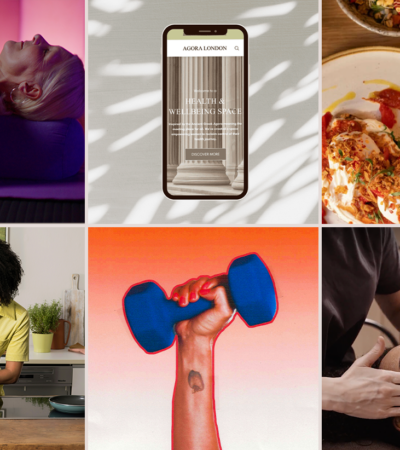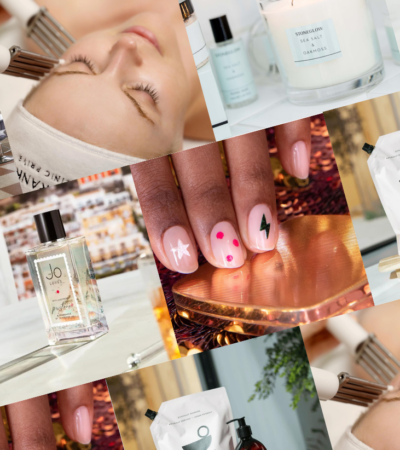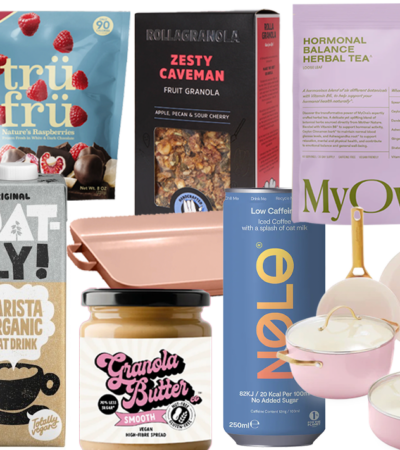Discussing women’s health and hormonal changes such as the menopause or PMT is becoming less of a taboo topic in today’s society, but how often do you overhear conversations about physical conditions affecting the vagina itself? Probably not that often. Below Katie Pande, Medical Herbalist discusses the top five health conditions that physically affect vaginal health including cystitis, thrush, low libido, vaginal dryness and bacterial vaginosis.
As a herbalist, the majority of my patients are women, but even in a one-to-one situation, it’s rare for a woman to openly talk about ailments such as thrush or cystitis unless they feel it is related to a ‘bonafide’ condition such as the menopause or pregnancy. There is often a sense of shame or embarrassment over how they might have ‘caught’ such a condition. Let’s be clear from the outset; no-one can ‘catch’ conditions such as cystitis or thrush – they are part and parcel of having a vagina and all the hormones that come with it. And, I think I can safely say, that almost every woman reading this article will have, at some point in their lives, suffered from at least one of these issues.
For sure, hormonal change and disruption can undoubtedly affect the likelihood of the onset of such conditions, but they can also be influenced by external factors such as physical exercise, tight clothing, diet, stress, hygiene issues at public conveniences (I’m thinking festival loos) and even too much sex. But, first of all, let’s actually look at what the physical symptoms of each of these conditions are:
Cystitis: An inflammation of the lining of the bladder generally caused by bacteria. It can cause pain on urination and a persistent ‘itching’ sensation. The bacteria can set in as a result of not urinating after sex, holding onto urine if you’re not near bathroom facilities or are unable to empty your bladder fully (such as in pregnancy), bacteria from an unhygienic facility such as a port-aloo. Interstitial cystitis is where the infection tracks up to the kidneys, this is then a more serious concern and often results from not treating the initial infection.
Thrush/Candida: Thrush occurs when there is an overgrowth of Candida albicans (a yeast-like fungus) in your vagina. This occurs when the good bacteria in your vagina can’t keep the fungus under control. It can make you feel tired, upset your digestive system and lower libido. The most common cause of this is dietary or medications that affect bacterial balance.
Vaginal dryness: This is pretty self-explanatory. And, although one of the major causes is hormonal change such as menopause, it can also be caused by stress because increases in stress hormones affect the balance of our sex hormones. This can result in pain during sex and a loss of libido and confidence.
Bacterial vaginosis: This is a bacterial infection affecting the vagina and will result in an unusual smelling discharge, often produced after sex or exercise. There are not normally any other symptoms, but the knock-on effect can be a loss of libido and confidence. It can be caused by similar factors as cystitis but can also be influenced by perfumed or highly synthetic cosmetics used in the shower.
Low libido: There are many causes of this, but very often stress is a key factor. Its onset can also be influenced by medications such as anti-depressants or sleeping medications which naturally ‘dumb-down’ the nervous system.
So, now we know what we’re dealing with, how can we go about treating it? There are all sorts of treatments available over the counter, more often than not, containing cranberry, but let’s talk about some key herbs that can really get to the crux of the issue:
Aloe Vera: Most people associate aloe vera with healing skin burns or regulating the digestion. Let’s expand on this. Conditions, where there is excessive burning or dryness such as vaginal dryness or cystitis, can really benefit from the cooling, anti-inflammatory and skin healing effects of this juicy plant. And, no, you don’t need to insert a leaf into your vagina, all you need to do is drink it three times a day with meals. If you’re not keen on the taste, you can get it in capsule form. It’s also excellent at re-balancing gut bacteria, so can prove very beneficial for thrush.
Shatavari: This is such a wonderful herb for women. It has been used in Ayurvedic medicine for centuries to support every element of female health. Its main action is tackling hormonal imbalance, but by doing so, it really helps to boost libido and keep our stress hormones under control. In addition to this, it is a natural anti-inflammatory and can be very beneficial for vaginal dryness and cystitis. You will most likely find this in capsule form or in herbal teas. We like Pukka Wholistic Shatavari.
Neem: This is one hell of a herb. It really packs a punch and, quite frankly, tastes disgusting. However, it works a treat for any form of fungal or bacterial infection, both in the vagina and in the gut. It’s incredibly powerful and may induce the onset of a ‘candida die-off’ which can be quite unpleasant and is essentially where the body flushes out all the built-up toxins responsible for the infection or overgrowth. But, unfortunately, this is often a necessary evil. If you take the neem alongside aloe vera, for example, it can lessen the blow slightly. So, this herb is ideal for cystitis, thrush and bacterial vaginosis. I would recommend that you look for this in capsule form, and make sure you get the powdered leaf and not the oil as the oil is not safe for internal consumption.
Ashwagandha: Commonly known in Sanskrit as the herb that gives you the ‘strength of a stallion’. Not letting our imaginations run wild…this is the perfect solution for low libido and inability to orgasm due to high-stress levels. It’s actually more common than you might think for women to have sex but not experience regular orgasm. When this becomes the ‘norm’, the situation just continues and often worsens. Ashwagandha is the herbal solution to stress. It strengthens our nervous system and balances the stress response, building our physical and mental resilience to stress. It’s ideal for those who simply feel that they just don’t have the energy for sex and who really struggle to climax as a result. Just so you know…it also has a similar effect on men. The best way to take this would be in capsule form like these.
Turmeric: The super-spice! I think everyone has now heard of the numerous benefits of this herb. The reason why I am including it here is that it’s actually a very strong and effective anti-inflammatory and is also really helpful at regulating gut bacteria. It will be beneficial for any inflammatory condition such as cystitis, thrush or bacterial vaginosis. This is a herb that you could add into your daily diet regime, or, of course, you can take it in capsule and tea form.
So, there’s the herbal low-down. I’ve recommended capsule form for most of these herbs, but you can also get these from a medical herbalist in liquid form if you feel you need to have a more in-depth consultation and chat.
There are, of course, other things you can do. Diet is key for many of these conditions, especially thrush. The same rules generally apply; avoid foods high in sugar and yeast. This means cutting back on refined sugars, alcohol and yeasty foods such as bread. Often, if you stick to this diet for a month or so, you will start to see improvement. And, of course, lifestyle is important if stress is a key player for you. Even just taking 10 minutes away from your desk to walk around the block or taking 10 minutes before bed for some mindfulness will really help, especially if you can build it into a regular routine. If libido is an issue try and keep your ‘boudoir’ a space for relaxation, love and fun. Don’t use it as an office and remove any unnecessary technology from the space and try to keep it calm and clutter-free.
Let’s not make vaginal health a taboo topic; they are what makes us women unique so let’s treat them with respect and love.
Katie Pande, Medical Herbalist and Bach Flower Practitioner MNIMH, BFRP
www.organicherbalist.com
Subscribe to our Newsletter + receive our Sugar & Dairy Free E-Recipe Book, In The Hip & Healthy Kitchen.

